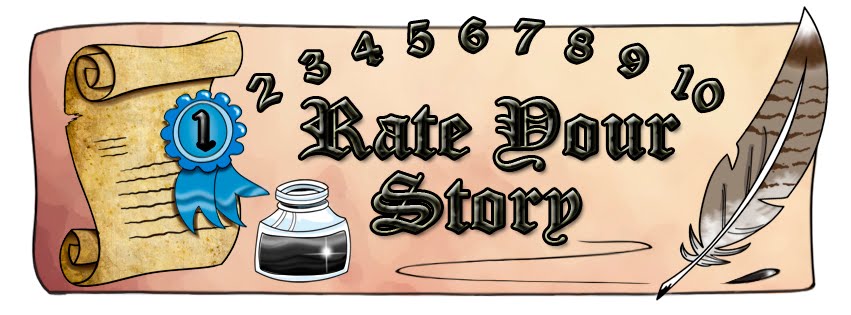For effective and salable work, we must learn to edit our work with less parental pride and more outsider objectivity, to combat that self-enchantment and cut courageously.
“But wait!” you exclaim. “How do I detect too much love? How do I know what to cut? How do I develop that critical eye?” I’ve discovered three unmistakable touchstones, gleaned from my own and other writers’ red-faced experiences.
As you look at a word, phrase, sentence, or paragraph, you feel something. Maybe it’s slight nausea, a moment of dizziness, a sudden flush, a sinking stomach.
Listen to your body. It’s telling you, first, that the passage needs work, and second, that you’re too invested in it. Soothe your forehead with a cool wet cloth and face it. It’s time to cut.

2. Your mind protests.
The moment you begin to toy with the idea of cutting that passage, your mind defends, reasons, and rationalizes:
- “This passage is needed! It’s explanatory, descriptive, lyrical, mood-setting, eloquent, graphic, moving, exciting, powerful . . . .”
- “It proves my genius!”
- “Look at all the drafts I’ve produced and chips I’ve consumed! Look how hard I’ve worked!”
However logical and reasonable these defenses seem, they aren’t. The first shows the extremes of your runaway ardor. The second attests every novice writer’s ultimate fantasy—you’ll be acclaimed and rewarded without having to pay your dues. The third betrays the writer as victim. No reader—parent, partner, friend, editor—cares how much time, effort, and calories you’ve put in. All they want is to be entranced and keep reading.
3. Your emotions blind you.
This condition is a little more subtle than the others. In your ill-fated romance, you may still be captivated by those words your body and mind have already signaled as offending. You may love the passage for the wrong reasons and will go to astonishing lengths to hold onto it:
- Having received a rejection, did you already start an angry letter to the editor denouncing the rigidity of her writing rules?
- Would you gladly rewrite the entire piece to preserve this passage?
- Would you throw out everything else and start a new piece around the passage?
If you’re blushing or reluctantly nodding, you’re in trouble.

I speak from sad experience. Recently, ready to email an essay to a chosen editor, I glanced at the opening sentence. Having reworked it countless times, I particularly loved its witty originality and sparkling alliteration. Only then did I see, shocked, that this all-important sentence conveyed the exact opposite of what I wanted to say! I cursed, raged, and rationalized. Finally, I sighed, and for the next two hours rewrote the entire first paragraph.
When you’ve finally performed the excising surgery, you can bind up your wounds with one or more of these soothers:
- Save the passage. Put it in a file labeled “Lost Loves” or “Cut But Not Forgotten.”
- Tell yourself how much better your piece is without the passage.
- Compliment yourself for being such an incisive editor. Think how proud your mother would be, and your old English teacher.
- Leave the piece alone, at least for a day. You’re not abandoning it but letting your subconscious simmer without interference. Why this detachment works remains eternally mysterious. But to go do something entirely different gives us the distance and objectivity we need to become courageous cutters.
- If the hole left by cutting still seems unfillable, or you can’t nudge out a decent transition, just start writing. What emerges will be usable somewhere.
- Read the best literature. Notice the conciseness and freshness.
- Read less than the best literature(!) Observe the flaws and clichés, and you’ll be more able to spot them—and edit them out—in your own work.
- Praise yourself for having finally developed that precious and elusive faculty all writers covet, editorial distance.
- If you’re still mourning your lost love, keep in mind that someday, somewhere, that rejected passage may reappear. It may float unbidden into your head while you’re working on another piece. You’ll rapturously find that, with only the slightest adjustment, this old love will be exactly what you needed.
Author, editor, writing coach, and spiritual counselor Noelle Sterne has published over 300 pieces in print and online venues, including Author Magazine, Chicken Soup for the Soul, Children's Book Insider, Fiction Southeast, Funds for Writers, and Writer's Digest. Using her PhD from Columbia University, Noelle has assisted doctoral candidates in (finally) completing their dissertations for over 28 years. In Noelle's book, Trust Your Life: Forgive Yourself and Go After Your Dreams (Unity Books, 2011) and the upcoming Challenge in Writing Your Dissertation: Coping with the Emotional, Interpersonal, and Spiritual Struggles (Rowman & Littlefield Education, 2015), she draws examples from her academic consulting, writing, and other aspects of life to help readers reframe their problems and reach their goals. Visit Noelle at www.trustyourlifenow.com



Good post. Yes, sometimes it takes cutting, cutting and more cutting. I had to cut out an entire chapter once. And when it comes to picture books, you need to edit to get the "just right" words. Because every word counts.
ReplyDeleteJanet at
http://creativewritingintheblackberrypatch.blogspot.com